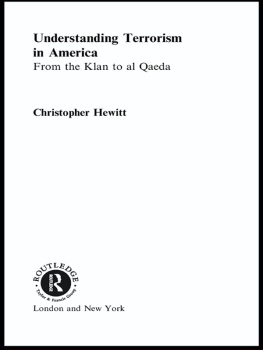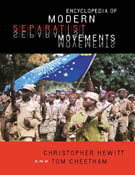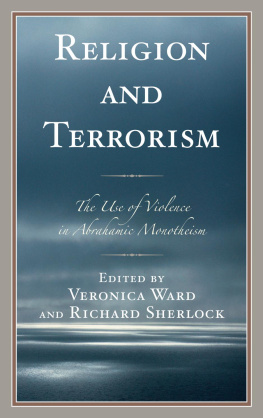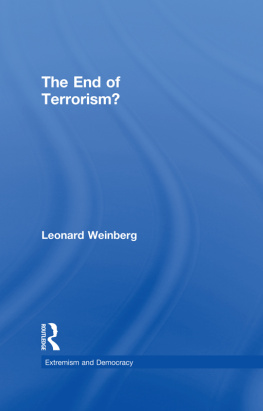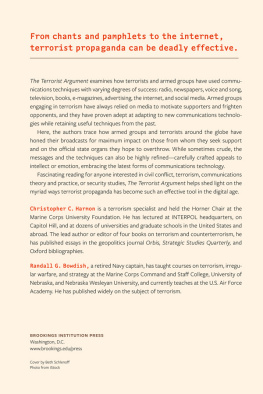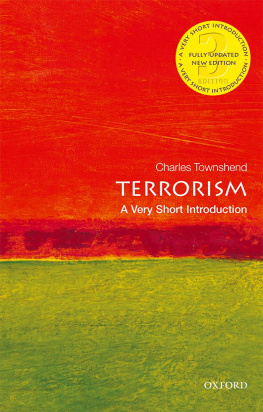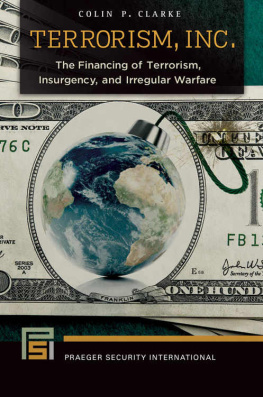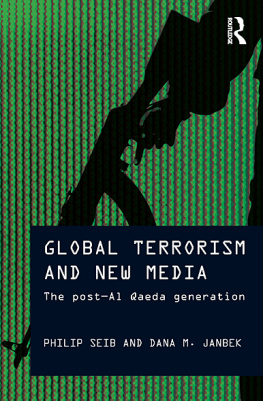Understanding Terrorism in America
The terrorist attacks on September 11, 2001, seemed to initiate the United States into the full horrors of international terrorism. Yet the country is no stranger to terrorism. Since 1950 there have been over 3,000 terrorist attacks, ranging from the Ku Klux Klans campaign of terror against the civil rights movement, through the waves of attacks by neo-Nazi and militia groups to the activities of Osama bin Ladens al Qaeda network.
Christopher Hewitts book is a vivid survey of the causes and strategies of terrorism and governmental responses to it. He examines the organizational structure of terrorist networks, how they are financed, and their ideological agendas. His comprehensive portrait examines the complete spectrum of terrorist groups active in the United States, including Islamic fundamentalists, white supremacists, black militants, revolutionary communists, neo-Nazis, militant Jewish groups, migr groups and anti-abortionists.
This book is essential reading for students of American politics and terrorism. It also provides a highly readable account for interested readers wishing to know the background to a subject which has recently become even more tragically relevant in world affairs.
Christopher Hewitt is Professor of Sociology at the University of Maryland, Baltimore County. He has published widely on all aspects of terrorism and is a regular commentator in newspapers and on television.
Routledge Studies in Extremism and Democracy
Series editors: Roger Eatwell, University of Bath, and Cas Mudde, University of Antwerp-UFSIA
This new series encompasses academic studies within the broad fields of extremism and democracy. These topics have traditionally been considered largely in isolation by academics. A key focus of the series, therefore, is the relation between extremism and democracy. Works will seek to answer questions such as the extent to which extremist groups pose a threat to democratic parties, or how democracies can respond to extremism without undermining their democratic ideals.
The books encompass two strands:
Routledge Studies in Extremism and Democracy includes books with a broad and introductory focus which are aimed at students and teachers, available in hardback and paperback. Titles include:
Understanding Terrorism in America
From the Klan to al Qaeda
Christopher Hewitt
Routledge Research in Extremism and Democracy offers a forum for new research intended for a more specialist readership, in hardback only.
Titles include:
- Uncivil Society?
Contentious politics in post-communist Europe
Edited by Petr Kopecky and Cas Mudde
- Political Parties and Terrorist Groups
Leonard Weinberg and Ami Pedahzur
- Western Democracies and the New Extreme Right Challenge
Edited by Roger Eatwell and Cas Mudde
Understanding Terrorism in America
From the Klan to al Qaeda
Christopher Hewitt
First published 2003
by Routledge
11 New Fetter Lane, London EC4P 4EE
Simultaneously published in the USA and Canada
by Routledge
29 West 35th Street, New York, NY 10001
Routledge is an imprint of the Taylor & Francis Group
This edition published in the Taylor & Francis e-Library, 2003.
2003 Christopher Hewitt
All rights reserved. No part of this book may be reprinted or reproduced or utilised in any form or by any electronic, mechanical, or other means, now known or hereafter invented, including photocopying and recording, or in any information storage or retrieval system, without permission in writing from the publishers.
British Library Cataloguing in Publication Data
A catalogue record for this book is available from the British Library
Library of Congress Cataloging in Publication Data
Hewitt, Christopher.
Understanding terrorism in America: from the Klan to al Qaueda/Christopher Hewitt.
p. cm. - (Routledge studies in extremism and democracy)
Includes bibliographical references and index.
1. Terrorism-United States. 2. Terrorists-United States.
3. Radicalism-United States. I. Title. II. Series.
HV6432.H48 2002
303.625 0973-dc21 2002069858
ISBN 0-203-30143-9 Master e-book ISBN
ISBN 0-203-34566-5 (Adobe eReader Format)
ISBN 0-415-27765-5 (hbk)
ISBN 0-415-27766-3 (pbk)
Tables
Illustrations
Series editors preface
For much of the short twentieth century, history was characterized by the clash of great ideologies, internal violence and major wars. Although most catastrophic events took place outside the Western world, Europe and the United States were not immune from the turmoil. Two world wars and a series of lesser conflicts led to countless horrors and losses. Moreover, for long periods liberal democracy -especially in its West European form - seemed in danger of eclipse by a series of radical forces, most notably communist and fascist.
Yet by the turn of the 1990s, liberal democracy appeared destined to become the universal governmental norm. Dictatorial Soviet communism had collapsed, to be replaced in most successor states by multiparty electoral politics. Chinese communism remained autocratic, but in the economic sphere it was moving rapidly towards greater freedoms and marketization. The main manifestations of fascism had gone down to catastrophic defeat in war. Neo-fascist parties were damned by omnipresent images of brutality and genocide, and exerted little appeal outside a fringe of ageing nostalgics and alienated youths.
In the Western world, political violence had disappeared, or was of minimal importance in terms of system stability. Where it lingered on as a regularly murderous phenomenon, for instance in Northern Ireland or Spain, it seemed a hangover from the past - a final flicker of the embers of old nationalist passions. It was easy to conclude that such tribal atavism was doomed in an increasingly interconnected capitalist world, characterized by growing forms of multi-level governance that were transcending the antagonism and parochialism of old borders.
However, as we move into the new millennium there are growing signs that extremism, even in the West, is far from dead - that we celebrated prematurely the universal victory of democracy. Perhaps the turn of the twenty-first century was an interregnum, rather than a turning point? In Western Europe there has been a rise of extreme right and populist parties, which pose a radical challenge to existing elites -even to the liberal political system. In the United States, the 1995 Oklahoma mass-bombing has not been followed by another major extreme right attack, but there is simmering resentment towards the allegedly over-powerful state among well-armed militias and other groups. More generally across the West, new forms of green politics, often linked by a growing hostility to globalization-Americanization, are taking on more violent forms (the issue of animal rights is also growing in importance in this context).
In the former Soviet space, there are clear signs of the revival of communist parties (which often masquerade as socialists or social democrats), whose allegiance to democracy is (in varying degrees) debatable. In Latin America, there remain notable extremist movements on the left, though not all tend to be communist. This trend may well grow both in response to globalization-Americanization and to the (partly linked) crises of many of these countries, such as Argentina. This in turn increases the threat to democracy from the extreme right, ranging in form from paramilitary groups to agromilitary conspiracies.

